THE FUTURE



I am delighted to share some our department’s highlights and advance ments from the last six months. We are currently ranked as a top 10 pe troleum engineering department, and have made great strides in research and academia. I invite you to read through the following stories, and if you see opportunities for collaboration, do not hesitate to reach out.

Cullen College of Engineering Univeristy of Houston


The Petroleum Engineering graduate level program at the University of Houston’s Cullen College of Engineering was named a top 10 school for 2023, according to the latest rank ings edition of U.S. News & World Report. It’s official rank is No. 10.
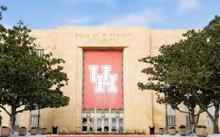
Overall, the Cullen College of Engineering was rated as the No. 71 graduate school in the nation. As of Fall 2021, the Cullen College of Engineering had about 2,955 undergraduate students enrolled, as well as 732 students pursuing Masters’ degrees, and 535 doctoral students. The Masters’ student enrollment represents a gain of more than 200 students, year-to-year.
Degrees are offered in biomedical, chemical, civil, comput er, electrical, environmental, geosensing systems, industri al, mechanical and petroleum engineering. The college also offers interdisciplinary graduate programs in subsea, aero space, space architecture, materials and computer and sys tems engineering.
The University of Houston is a Carnegie-designated Tier One public research university recognized by The Princeton Review as one of the nation’s best colleges for undergraduate education. UH serves the globally competitive Houston and Gulf Coast Region by providing world-class faculty, proj ect-based learning, high impact research and strategic indus try partnerships. Located in the nation’s fourth-largest city, UH serves more than 47,000 students in the most ethnically and culturally diverse region in the country.
For the full list of rankings from U.S. News and World Report, please visit: https://www.usnews.com/best-graduate-schools
University of Houston | Cullen College of EngineeringGuan Qin has been promoted from Associate Professor to
Professor. He is also the Gulf Coast Section of the Society of Petroleum Engineers Endowed Professor. He joined the college in 2012, after teaching at the University of Wyo ming, which is also where he earned his doctorate.

George K. Wong has been awarded tenure at the Asso
ciate Professor rank. Wong joined the college in 2016, af ter a more than 30-year professional career with Shell. He earned his doctorate from Stanford University.
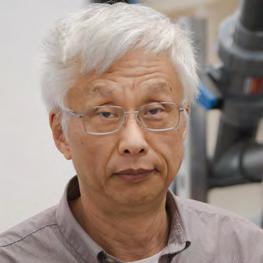 University of Houston | Cullen College of EngineeringUniversity of Houston | Cullen College of Engineering
University of Houston | Cullen College of EngineeringUniversity of Houston | Cullen College of Engineering
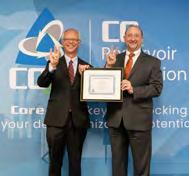
The research of Birol Dindoruk, the American Association of Drilling Engi neers Endowed Professor of Petroleum Engineering & Chemical and Biomolec ular Engineering, was recognized with a $100,000 gift from Core Lab Corp. earlier this year. According to a press release from Core Lab earlier this year, the funds will support a consortium held jointly with the University of Houston: “Core Lab is pleased to announce the launch of a joint-indus try Carbon Capture and Sequestration Consortium to analyze technical risks and challenges associated with subsurface carbon sequestration. As the number of carbon capture and sequestration projects expands, Core is leveraging its exper tise in subsurface evaluation. The CCS Consortium, in collaboration with Dr. Birol Dindoruk of the University of Houston, has been formed to support global energy transition and decarbonization efforts. The Company hosted a project ini
tiation meeting at its Houston, Texas Advanced Technology Center on 23 February 2022. The meeting was attended by technical representatives from an international panel of in augural member companies, including: Chevron U.S.A. Inc., EOG Resources, Inc., JX Nippon Oil & Gas Exploration Corporation, Repsol Exploración S.A., Shell Exploration and Pro duction Co., and Talos Low Carbon Solutions LLC.”
In addition to his many research contributions, Dindoruk is also a member of the National Academy of Engineering.
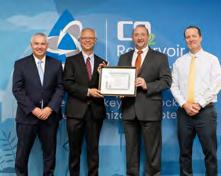

The Dead Oil Viscosity calculator was designed at the Uni versity of Houston’s Petroleum Engineering Department and is the direct implementation of one the algorithms (XGB Method) described in a recent SPE paper, “Physics Augment ed Correlations and Machine Learning Methods to Accurately Calculate Dead Oil Viscosity Based on the Available Inputs” (SPE-209610-PA), co-authored by Utkarsh Sinha, Birol Dindoruk, and Mohamed Y. Soliman.
According to the researchers, the calculator is easy to use and estimates Dead Oil viscosity for a broad range of oils, in cluding heavy, medium and light with viscosities in the range of a fraction of a cp to about a million cp with very high ac curacy. The calculator also contains a very short (non-audio) demo video explaining how to use its simple implementa tion and a template input file to pass the input data. The only input data needed are the oil API, MW of dead oil measured at stock tank conditions and the reservoir temperature
Existing viscosity correlations either exhibit inherent bias in the training datasets (which tends to be limited set) used in making the correlation and/or require detailed data. In addi tion, low API(<20 °) dead oils the predictive error could be up to 10 fold or more.
The applications of the calculator are important for numerous reasons. Viscosity is one of the key parameters in most petroleum engineering applications, and dead oil viscosity is one of the poorly predicted quantities and difficult to mea sure considering the range of variability (widest scale varia tions). Dead oil viscosity is also the starting point for live oil viscosity estimation. Current lab equipment may have upper and lower limits, and physical Oil samples are not always available for screening studies to perform the measurements at the desired temperature. The calculator helps overcome some of these obstacles.
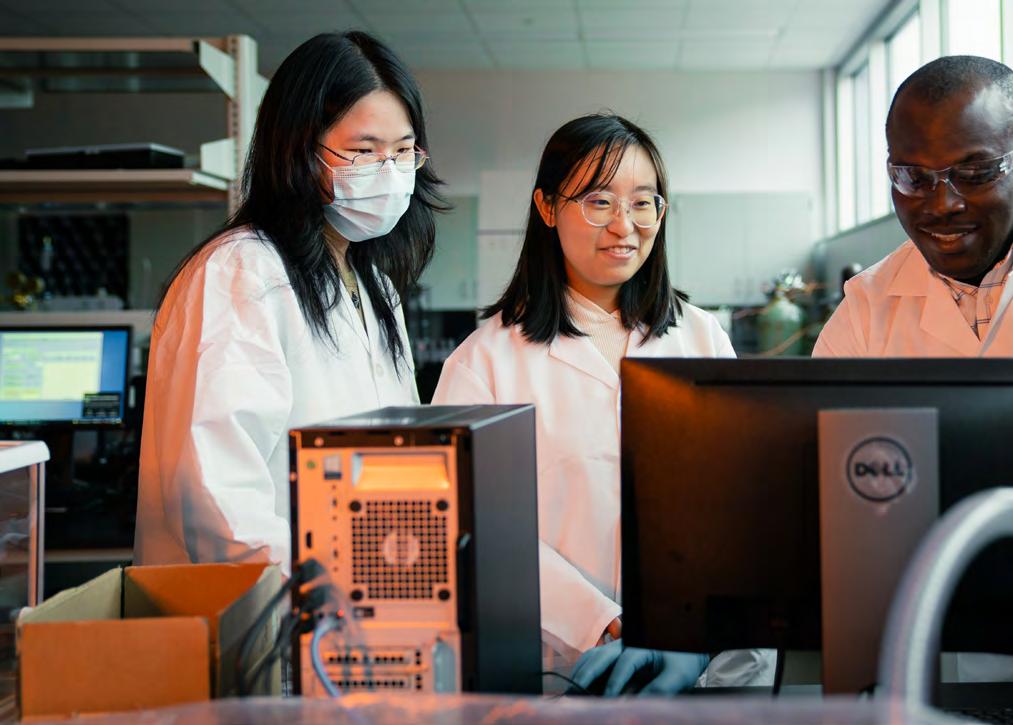
It might seem paradoxical, but producing oil and gas from shale reservoirs could actually help the world transition to cleaner energy sources. One of the keys to a success ful energy transition will be enough lithium to make the lithium-ion batteries needed for electric vehicles, energy storage projects and other energy-efficient devices that will power the low carbon future of the world.
That’s where the research of Kyung Jae Lee, an Assistant Professor of Petro leum Engineering at the University of Houston’s Cullen College of Engineering comes into play. In a paper published in Energy Reports, Lee lays out the poten tial of petroleum-based rock brines as a new source of lithium.


Through her research of Pennsylvania’s Marcellus Shale play, Lee found that highly concentrated lithium was found in the produced water (water produced as a byproduct during the extraction of oil and natural gas) along with produced natural gas and oil.
|
The UH Society of Petroleum Engineers (UH SPE) has been awarded the Student Chapter Excellence Award for the second time in a row. The award is the second-highest honor student chapters can receive, recognizing the top 20% of eligible student chapters.

Ph.D. student, Ajibola Samo, took home a top research gratn and scholarship from the SPWLA earlier this year. Samo is the UH SPWLA student chapter president. He is currently on track to finish his studies in 2023.
 University of Houston | Cullen College of EngineeringUniversity Houston
University of Houston | Cullen College of EngineeringUniversity Houston
The University of Houston Cullen College of Engineering addresses key challenges in energy, healthcare, infrastructure, and the environment by conducting cuttingedge research and graduating hundreds of worldclass engineers each year. With research expenditures topping $40 million and increasing each year, we continue to follow our tradition of excellence in spearheading research that has a real, direct impact in the Houston region and beyond.
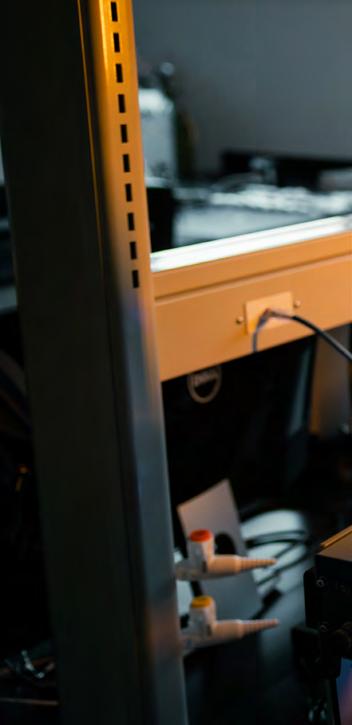
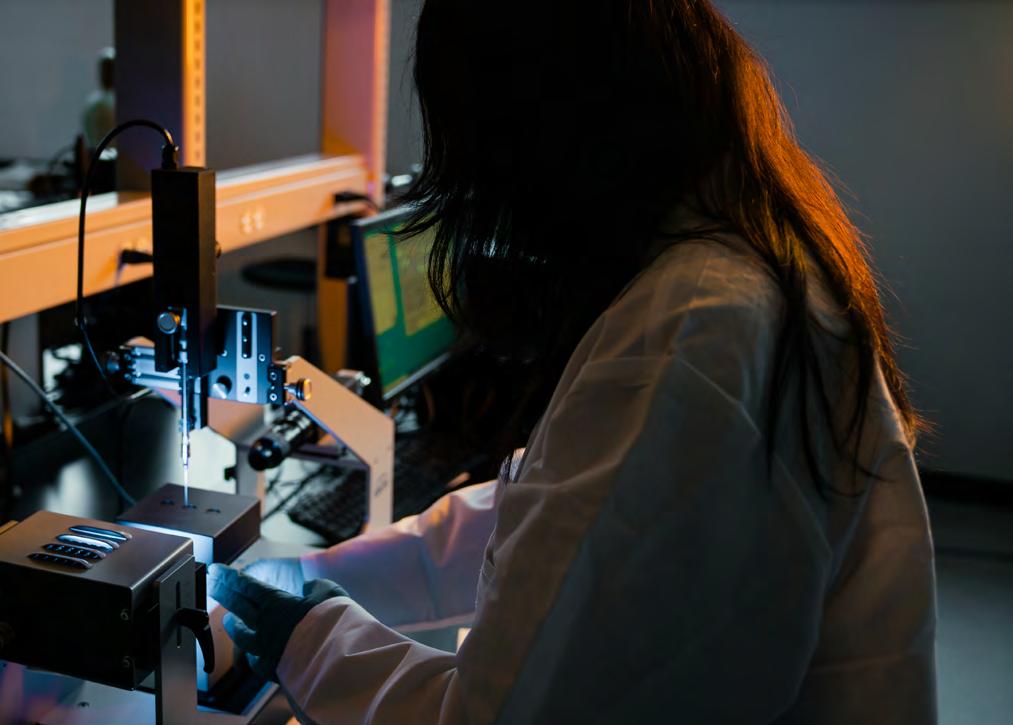
UH Cullen College of Engineering
Department of Petroleum Engineering
UH Technology Bridge
5000 Gulf Freeway Bldg 9, Room 219
Houston, TX 77204 0945
@UHEngineering